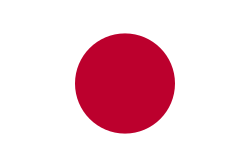
Back قومية يابانية Arabic Nacionalisme japonès Catalan ناسیۆنالیزمی ژاپۆنی CKB Japanischer Nationalismus German Nacionalismo japonés Spanish Japoniar nazionalismo Basque ملیگرایی ژاپنی Persian Nationalisme japonais French Nacionalismo xaponés Galician Ճապոնական ազգայնականություն Armenian
This article has multiple issues. Please help improve it or discuss these issues on the talk page. (Learn how and when to remove these messages)
|

| Part of a series on |
| Nationalism |
|---|
Japanese nationalism[a] is a form of nationalism that asserts the belief that the Japanese are a monolithic nation with a single immutable culture. Over the last two centuries, it has encompassed a broad range of ideas and sentiments. It is useful to distinguish Japanese cultural nationalism from political or state nationalism, since many forms of cultural nationalism, such as those which are associated with folkloric studies, have been hostile to state-fostered nationalism.
In Meiji Japan, nationalist ideology consisted of a blend of native and imported political philosophies, initially developed by the Meiji government to promote national unity and patriotism, first in defense against colonization by Western powers, and later in a struggle to attain equality with the Great Powers.
It evolved throughout the Taishō and Shōwa periods, and was used to justify increasingly extreme ideology, such as fascism, totalitarianism, and overseas expansionism. It has also provided a political and ideological foundation for the actions and atrocities of the Japanese military in the years leading up to and throughout World War II.
Japanese nationalism has been used as justification for revising history textbooks from revisionist perspectives, which denies Japanese imperialist atrocities, including 'comfort women' and the Nanjing Massacre.[1]
Cite error: There are <ref group=lower-alpha> tags or {{efn}} templates on this page, but the references will not show without a {{reflist|group=lower-alpha}} template or {{notelist}} template (see the help page).
- ^ Tanabe, Shunsuke (March 2021). "Sociological studies on nationalism in Japan". International Sociology. 36 (2): 171–182. doi:10.1177/02685809211005347. ISSN 0268-5809. S2CID 234834919.